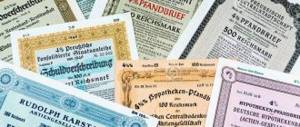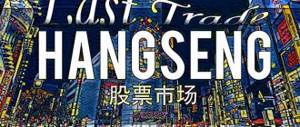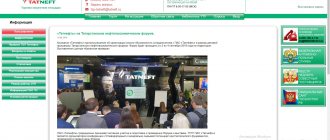The development of the post-Soviet economic space over the past few years (after the 2008-2009 crisis) has to some extent determined the future leaders and outsiders of the manufacturing and financial markets throughout the Central Asian region. Investors all over the world have excellent analysis and forecasting tools in order to determine where exactly it is worth investing their capital.
In many ways, such an indicator is the state and level of development of the financial market, which is clearly demonstrated and transmitted, first of all, to external investors. In particular, it is through the stock market, as well as the capital market, that it is determined how high the degree of investment activity and attractiveness of a particular economy is.
The Kase Stock Exchange of Kazakhstan (KASE) can serve as a rather interesting and illustrative example not only for study, but also for practical application, for example, for a future investor.
About the exchange
| Name | Kazakhstan Stock Exchange |
| Ticker | KASE |
| Country and site | Kazakhstan |
| Year founded and owner | 1993, National Bank (50.5% stake) |
| Number of public companies | 127 |
| Number of shares traded | 197 shares. |
| Capitalization | US$45 billion |
| Main index | KASE Index |
| Official site | kase.kz |
| Trading session time | 12:00-21:00 Moscow time |
History of the exchange
After the collapse of the Soviet Union, the national currency of Kazakhstan, the tenge, was introduced and came into circulation at the end of 1993. This was the impetus for the decision to create a centralized exchange on which government and corporate securities, derivatives and foreign currencies could be traded.
There was only a currency exchange in the country, and the National Bank of Kazakhstan was faced with the task of laying the foundation for the stock market of its state. First of all, it was necessary to open a trading platform, formulate requirements for listing, and then launch trading.
Trading in securities on the Kazakhstan Stock Exchange started in 1995. The name of the platform itself changed several times; the abbreviation “Kase” (Kazakhstan Stock Exchange) was fixed in 1996.
Trading in derivative financial instruments on KASE began in 1999, before that it was carried out on a separate exchange due to legislation, and all the necessary amendments were introduced only at the end of 1998.
In 2007, the trading platform became commercial, and the principle of corporate governance was introduced. In the same year, the KASE index was launched. In subsequent years, the Kase exchange did not undergo any fundamental changes.
Market participants
| Stock Exchange | |||
| Brokers | Regulators | Issuers | Investors |
An exchange can only function if each of these elements is present. If one of them is excluded, then its existence in its previous form will cease.
Brokers
The essence of the existence of all exchanges is the possibility of concluding transactions, which means the work of brokers. The latter enter into transactions on behalf of large financial institutions, other companies, and individuals.
When starting to work on the stock exchange, you should choose a brokerage company for your service. How to proceed:
- Register.
- Top up your trading account.
- Start trading.
Before starting trading activity, you need to find out how the market works, familiarize yourself with existing risks, service costs, offered guarantees and other important points.
Regulators
They control brokerage companies and their activities. If a violation is detected, the broker may lose his license. In this case, his clients will move to another company.
Regulators are significantly reducing the number of violations on the stock exchange.
Issuers
This is the name given to enterprises that have issued securities that will subsequently be traded on the stock exchange. They can be both public and private.
The government issues exclusively fixed income bonds to the market. The latter in this case is guaranteed, as is the timely return of the invested money. That is why government guarantees are considered the most reliable.
Enterprises have launched the issue of shares and bonds. There is no guarantee of return of nominal value. If bankruptcy occurs, investors lose their investment.
The advantage in investing should be given to securities protected at the state level.
Investors
They provide additional capital to allow the organization to expand, as well as commission payments due to other market participants. It can be argued that investors support the entire structure of the stock exchange.
Players
Types of players on the stock exchange:
- Bulls are participants who play for the increase. The essence of this definition is that a bull going into an attack hooks its opponent on its horns and throws him up. A growing market is called a “bull” market.
- Bears are those who trade short. The bear attacks from top to bottom. A falling market is a bear market.
How the auction works
The trading session on Kas runs from 9 to 18 hours local time (+3 from Moscow), with a break for lunch. This schedule applies to all markets.
Participants
The Kase Exchange has the following main types of markets.
First, the stock market:
- Government bonds. Their issuer is the National Bank, the Ministry of Finance of Kazakhstan and regional authorities. In total, more than 200 bonds were placed on the KASE exchange, their total value exceeds $30 billion.
- Corporate bonds. About 250 bonds issued by domestic and foreign companies (mainly banks) are traded on Kas. The total value of such securities is around $20 billion.
- Stock. At the time of writing, shares of 130 companies are traded on the Kase exchange. The main field of activity of issuing organizations is finance and energy. The stock market capitalization on KASE exceeds $50 billion.
Secondly, the foreign exchange market. This is the most important market in Kase; the exchange rate of the currency is formed on it, at which the National Bank of Kazakhstan forms the official exchange rate of the tenge to the dollar. In addition to the dollar (USD/KZT is the main currency pair), the tenge is traded against the euro (EUR), rubles (RUB) and yuan (CNY). The EUR/USD pair is also present.
Thirdly, the derivatives market. The most liquid asset here is the settlement futures for the tenge to dollar pair, but other futures contracts are also traded on Kas.
Useful tips
A few tips to keep in mind for a novice player:
- Do without complete trust in the forecasts of the media and analysts. No one can accurately predict price changes. In addition, there are media that deliberately disseminate false information, being participants in conspiracies.
- Acquire various assets (diversify): bonds, real estate shares, precious metals, etc.
- Have a clear goal. You need to understand what kind of income to strive for. In addition, it is important to determine whether trading on the stock exchange will be the main, additional or passive source of income. Understanding this point will help you decide whether to entrust the management of funds to a broker or conclude transactions yourself, having mastered the required knowledge and skills.
How to list on the stock exchange
To obtain the right to list securities on the Kase exchange, the issuing company must submit an application to the listing commission.
The basic requirements are as follows:
- full financial transparency on all monetary transactions;
- availability of public reports on the organization’s activities available online;
- the company has been in existence for at least one year.
A complete list of conditions required for listing can be found on the official website of the Kase exchange.
The commission always makes a list of comments that the company must correct within a certain period of time in order to obtain listing rights.
After the final approval of the commission, trading in the organization’s securities will begin approximately 3 months later.
Functions
The stock exchange has many functions:
- Bargaining. Trading on the market does not stop: securities are constantly bought and sold here. Brokers operate as usual.
- Preparation of contracts. In this case, the contract means the moment of the transaction. How it will be executed is discussed in advance, commissions, closing dates, etc. are taken into account.
The main task is immediate assistance in concluding a transaction, and subsequently providing reporting documentation that describes the work done.
- Price quotation. The price is considered to be an agreement reached by a certain group of people. They discuss the cost of the instrument in a specific time period. The “mood” of exchange participants is constantly monitored. Based on the monitoring results, a price is issued and recorded on the charts.
A stock market participant should not be subject to the majority opinion and generally accepted trends. The main thing for him is a developed instinct, which helps to make a purchase or sale on time.
- Transaction execution guarantee. On the stock exchange, brokers face restrictions regarding opening/closing positions. For example, Margin call is the level of loss on a trader’s account at which the broker is obliged to warn him about the need for replenishment.
The mechanism of the stock exchange is regulated by internal rules and instantly reflects the “mood” of everyone who takes part in it.
Pros and cons of this exchange
Let's start with the advantages of Kase:
- High potential. The entire CIS stock market is greatly undervalued, primarily due to its age. Young markets always have good prospects.
- Positive dynamics in the country's economy. Kazakhstan is a confident leader among the countries of Central Asia. Its territory is rich in resources, which makes it possible to develop the energy industry. Large national companies are successful both in the domestic and foreign markets. Their shares are slowly but surely growing, and this growth will continue.
- The authority of Kase herself. Despite the fact that the KASE platform appeared not so long ago, it has already managed to enter into partnerships with other major Asian exchanges, thereby demonstrating its stability and reliability.
- Tight regulation. Since the Kase exchange is the main representative of the entire stock market of Kazakhstan, the National Bank of the country exercises constant control over the trading process, ensuring the stability of the platform.
- High technological level. The KASE exchange uses a modern online trading system (sTrade), which is used on other major trading platforms around the world.
However, Kase, unfortunately, also has a lot of disadvantages:
- Unstable tenge to dollar exchange rate. The main reason that scares investors away. Like our ruble, the tenge is not stable due to various reasons, including political ones. However, the regulator is doing everything to strengthen the national currency.
- A small number of Kase's assets. 130 listed companies are very few, and not all shares are liquid. There are also few currency pairs. You can't really get away with trading.
- Complex interface. Although the sTrade online trading system used on KASE is high-tech, it is difficult for beginners to understand. Kase's management has no plans to simplify the trading process yet.
The most famous stocks traded here
Of the domestic companies, the largest issuers of Kase are KAZMinerals, KazMunayGas, KazTransOil, Kazakhtelecom and Halyk Bank.
Shares of Russian organizations are also traded on Kas (Gazprom, Sberbank, VTB, Magnit, Aeroflot).
Among the foreign issuers of Kase, it is worth mentioning Bank Of America - on KASE it is the largest company by capitalization.
Trading indices
The main index is the KASE share index; it acts as an indicator of the situation on the stock market of Kazakhstan.
It includes 7 largest national companies and banks:
- KazMinerals;
- KazTransOil;
- National Bank;
- Kcell;
- KECOC;
- Kazakhtelecom;
- CenterCreditBank.
In addition to the KASE index, there are indices for corporate bonds KASE_BMC and KASE_BMY, as well as the KazPrime indicator, on which the exchange rate of currencies is based.
Useful articles
List of all American stock exchanges: differences between platforms, where it is better to trade and how to connect to the market
TOP 20 largest stock exchanges in the world + how to access online trading on them
Overview of the St. Petersburg Stock Exchange (SPB): what stocks are traded there and how to access them?
Trading Process
Professional trading on the stock exchange is not easy. Many traders have been searching for an algorithm that actually makes a profit for several years.
Strategists and analysts who are ready to trust their own instincts feel most comfortable on the stock exchange.
What is the algorithm that every trader should follow:
- Choosing a broker. Not the easiest step. It is important to find a professional who is familiar with all the features of the exchange game. The best broker has an excellent reputation and leverage.
- Once the choice is made, you can begin installing a trading terminal on your PC. If it seems that it is too complex and inaccessible for the average user to understand, a broker will again come to the rescue, capable of explaining in detail the principle of operation of the software.
- Opening your own account on the stock exchange and transferring funds to it.
- Finding a suitable strategy. A competent approach to passing this stage is exactly what can bring maximum profit.
- When the account is opened, a period begins during which you should expect to “break even” (from seven days to one year). The result depends on many factors: the trader’s skills, strategy, readiness for any outcome, etc. Until the account is empty, this stage will not be completed.
Once you start trading on the stock exchange, you should not expect income to arrive on the second day. The process can really take a long time, and the trader will be engaged in careful monitoring of the chart, quotes and tables throughout the entire period.
Prospects for investing in these indices
The Kazakhstani stock market is related to the Russian one. The country's economy is built mainly on the resource extraction and energy industries, so large Kazakhstani companies operating in these industries have room to grow. Since the 2008 crisis, the stock market has not had significant drawdowns.
As for investments, it is possible to invest a small part of your capital in shares of Kazakh companies for the medium term (up to 5 years), but you should carefully monitor the economic situation in the Central Asian region.
It is still difficult to say about Kase’s long-term prospects due to the fact that the country’s national currency is not highly stable.
Newbie mistakes
What to avoid when starting work on the stock exchange:
- Inflated expectations. Playing on the stock exchange seems to many to be the simplest source of good income. This opinion is erroneous, since during the first months it will not be possible to avoid losses.
- Investment in trading 100% of savings. This is a common mistake of people who dream of becoming very rich in the shortest possible time. By mindlessly chasing big profits, you can only lose everything that has been accumulated.
- Investments in the assets of one enterprise. Any company can go bankrupt, and this must be taken into account.
When talking about common mistakes, we cannot fail to mention the term “blue chips”. This is the name given to the assets of large, stable enterprises.
In what cases is this concept applied:
- the company has been on the site for a long time;
- its assets have high liquidity and low volatility (the value does not change);
- the company has a really high income when compared with its competitors;
- It has a high capitalization.
New players often prefer to invest in blue chips, but this is best avoided to avoid huge losses.
Interesting facts about the exchange
- More than 95% of bidders are foreigners. The Kase exchange is not very popular among local investors, although its management is making efforts to attract them.
- Although KASE is the leader among Central Asian countries in terms of capitalization, it took the lead in terms of trading volume only in recent years (2016-2017).
- The controlling stake in Kase belongs to the National Bank of the country, while the management system is corporate.
- From time to time, public IPOs are held on the stock exchange.
- The KASE exchange became a full member of the World Federation of Exchanges in 2013.
Is this legal
All stock exchanges are legal. Their activities are constantly monitored by the competent authorities, and that is why the terms of transactions remain as transparent and fair as possible.
You can work on the stock exchange without fear of fraud, but taking into account certain risks. For example, there are cases of “blowing the bubble.” The phenomenon is marked by a “mad” increase in quotations over several years. This leads to the complete bankruptcy of the organization and the loss of all investments.
For this reason, before you start trading in the financial markets, you need to study the possible risks. Understanding them will allow you to save your own money.











